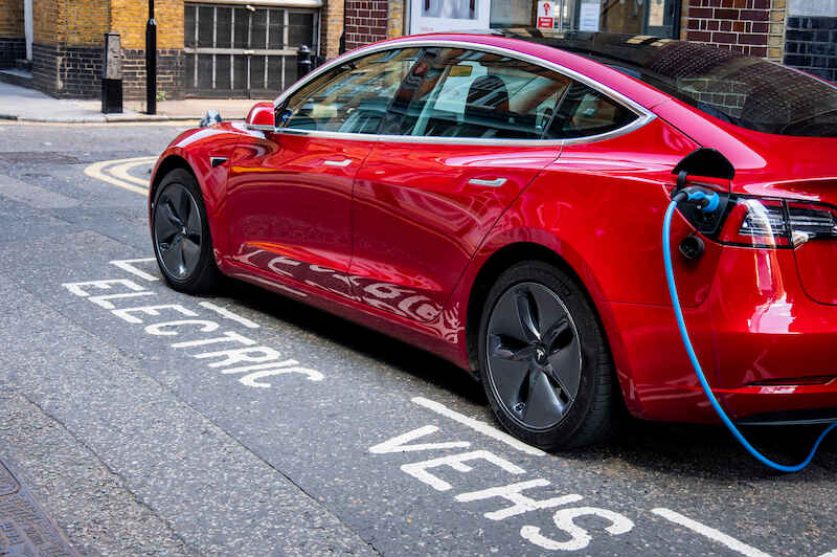
27,705 pure electric vehicles rolled off forecourts in December, accounting for one in four vehicles sold during the month, according to new figures from the Society of Motor Manufacturers and Traders (SMMT).
The 25.5% market share for battery electric vehicles was a record for a non-locked down trading month. However, overall car sales are usually down in December due to the weather and the holiday, so the month’s total sales numbers didn’t match the record 32,721 EVs sold in September (15.2% market share).
But December’s sales show that motorists are increasingly concerned about the environmental impact of their vehicles. They’re also still squeamish about diesel cars, exposed during 2015’s Dieselgate as highly polluting: just 5,201 were shifted in December 2021, representing just a 4.8% market share. That made December the sixth month in a row that sales of battery electric vehicles have exceeded diesel sales.
December’s EV bonanza rounded off an exceptional, record-shattering year for electric vehicles. In total, 190,727 battery electric vehicles were sold across 2021. That’s a huge 76.3% more than the 108,205 sold in 2020. It’s also more electric vehicles than were sold over the previous five years combined, SMMT said.
Overall, battery electric vehicles represented 11.6% of all new car sales in 2021, compared to just 6.6% in 2020.
The most popular battery electric vehicle in 2021 was the Tesla Model 3 (pictured), with 34,783 units sold in the UK, showing that buyers aren’t deterred by either its £42,00 price tag or the high-profile antics of Tesla boss Elon Musk. The Model 3 was followed (at a distance) by the Kia e-Niro (12,271) and Volkswagen ID.3 (11,032).
Sales of plug-in hybrids (PHEVs) were also strong, with 114,554 shifted. That means 18.5% of all new cars sold in 2021 can be plugged in.
Mike Hawes, chief executive of SMMT, said the rise in EV sales was the “undeniable bright spot” in a difficult year for the car market, which has been battered by the ongoing effects of the coronavirus pandemic and supply chain disruption, including shortages of semiconductors.
Just 1.65 million new cars were sold in the UK last year, marginally up from the 1.63 million shifted in 2020, but well below the 2.31 million sold in 2019. 2021 was therefore the second-worst year for new car registrations since 1992, after 2020.
But Hawes emphasised the importance of continued government support for electric vehicles, including mandated targets for the rollout of public on-street charge points and the reversal of the cuts to the electric vehicle grants.
The latest cut, implemented in December, reduced the maximum grant from £2,500 to £1,500 and also reduced the maximum purchase price of the vehicle from £35,000 to £32,000. This is the third cut made to plug-in grants in the past two years: in 2019, grants were for up to £3,500.
But forecasts for EV sales next year are still optimistic. New AutoMotive predicts that 300,000 battery electric vehicles will be sold in 2022, pushing their market share to 15%.
The UK will ban the sale of new petrol and diesel vehicles in 2030, with hybrid sales then prohibited in 2035.




